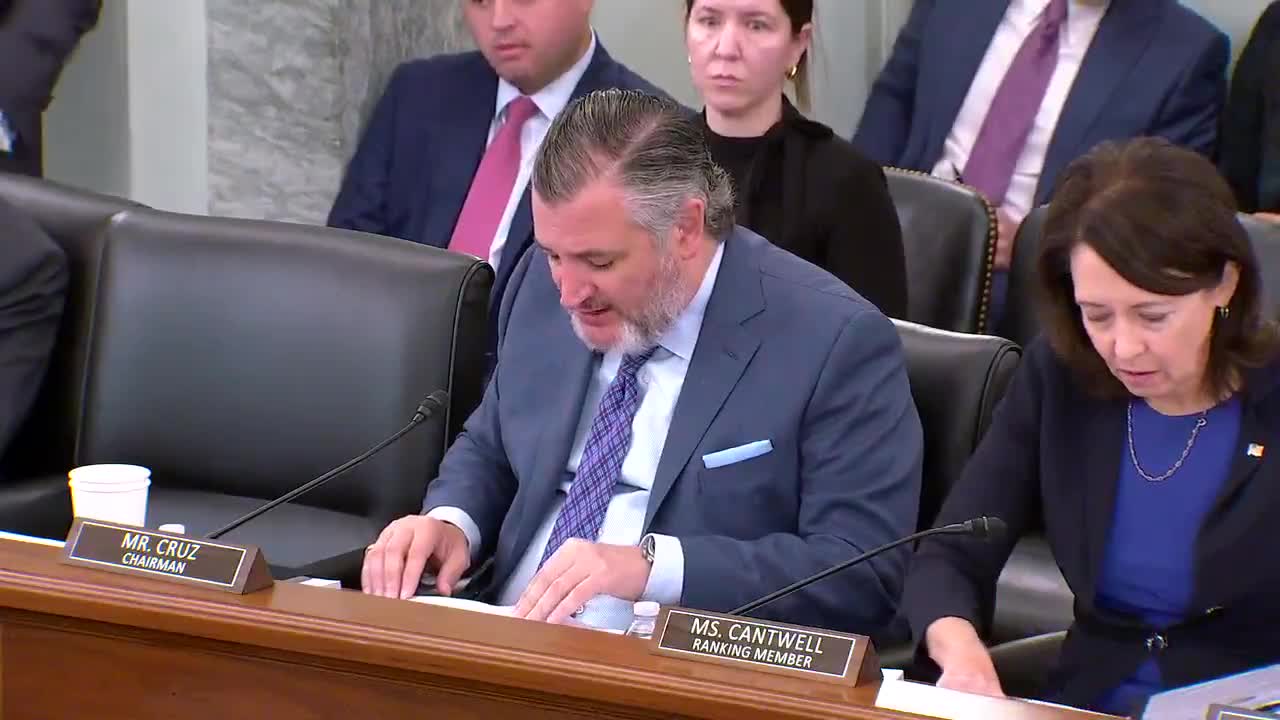Admiral Kevin Lundy faces senators’ questions on search-and-rescue closures, icebreakers and Coast Guard oversight
Get AI-powered insights, summaries, and transcripts
Subscribe
Summary
At his nomination hearing to be commandant of the U.S. Coast Guard, Admiral Kevin Lundy told the Senate Commerce Committee he supports Force Design 2028 and the service’s recapitalization while senators pressed him about 23 vacant search-and-rescue stations, icebreaker procurement, academy misconduct investigations and use-of-force protocols in counter‑drug operations.
Admiral Kevin Lundy, nominated to serve as Commandant of the U.S. Coast Guard, told the Senate Commerce, Science, and Transportation Committee that he supports a sweeping modernization plan and the recent large capital infusion for the service, but senators pressed him on readiness gaps, station closures, acquisition timelines and accountability following misconduct allegations at the Coast Guard Academy.
Why it matters: The Coast Guard is charged with maritime security, search-and-rescue, fisheries enforcement and polar operations. Senators used Lundy’s nomination hearing to probe whether the service has the personnel, facilities and oversight needed to implement a multiyear recapitalization effort and expand icebreaking and other capabilities in the Arctic and Great Lakes.
Key exchanges and commitments
Ranking Member Maria Cantwell told Lundy the Coast Guard identified 23 search-and-rescue stations with "0 permanent staffing or assets" and said there is no current plan to reopen them; she described reports of phased closures and raised concerns about potential privatization of search-and-rescue roles. Cantwell also pressed Lundy on morale and on ongoing investigations into misconduct at the Coast Guard Academy. Lundy acknowledged that staffing changes were taken in recent years because of an enlisted workforce shortage and said an assessment directed by Force Design 2028 will examine station status; he did not commit to preventing closures but said any closures would follow a statutory process that includes public input. "Search and rescue is not just one of our 11 missions. It's part of our DNA," Lundy said, adding that the service is assessing those decisions to avoid unduly increasing response risk.
Sen. Amy Klobuchar focused on Great Lakes icebreaking and asked whether the Coast Guard has resources for a second Great Lakes icebreaker. Lundy said FY24 appropriations provided $20 million for the analyze-and-select phase and that an additional $35 million is required to complete that phase; the request appears on the FY26 unfunded priorities list.
Chairman Ted Cruz and others pressed Lundy about acquisition flexibility. Lundy said relief from certain pre-acquisition requirements in Title 14, Chapter 11 — language included in the bill referenced in committee as the "1 Big Beautiful Bill" — was essential to move at "speed and scale" and warned that reinstating those requirements would slow deliveries of new cutters, aircraft and shore infrastructure.
On counter‑drug operations, senators asked whether Coast Guard interdictions in the Indo‑Pacific and Caribbean lead to prosecutions or other legal consequences for crews aboard interdicted vessels. Lundy said practice in many cases has been seizure and destruction of narcotics without seizing the vessel and that, in almost all cases, fishermen face no criminal punishment; he noted the service continues to seize record quantities of drugs and cited recent offloads tied to "Operation Pacific Viper."
Other topics covered included:
- JROTC expansion and Coast Guard youth programs (Sen. Wicker); Lundy said the service is working to meet statutory requirements. - Use of long‑range unmanned aircraft systems and depot investments from the new capital package to strengthen aviation readiness (Sen. Budd); Lundy described prototyping and depot funding already spent. - Housing and retention issues for Coast Guard personnel (Sen. Blunt Rochester, Sen. Peters); Lundy outlined three priorities: accurate housing allowances, improved leased housing, and building Coast Guard housing where needed. - Deepwater port environmental review: Sen. Markey warned that moving primary NEPA responsibility to MARAD could remove institutional expertise; Lundy said MARAD is the lead on the NEPA process while the Coast Guard supports the work.
What Lundy pledged: Lundy repeatedly pledged, if confirmed, to work with the committee on Force Design 2028 implementation, to prioritize acquisition efforts including a second Great Lakes icebreaker, to cooperate with inspector general investigations into misconduct, and to work with senators on home-porting decisions for icebreakers and on shore infrastructure issues. He also affirmed a commitment to comply with Buy America legal requirements for Coast Guard construction when applicable.
What remains unresolved: Lundy declined to commit categorically that no stations would close, saying assessments are ongoing and statutory public-review processes would apply; he did not provide firm timelines for many platform deliveries and said some home-porting decisions are not yet made. Senators promised follow-up questions for the record.
The hearing concluded after senators submitted a final procedural question; committee members were given deadlines to submit written questions and the nominee has until November 24 to respond.
